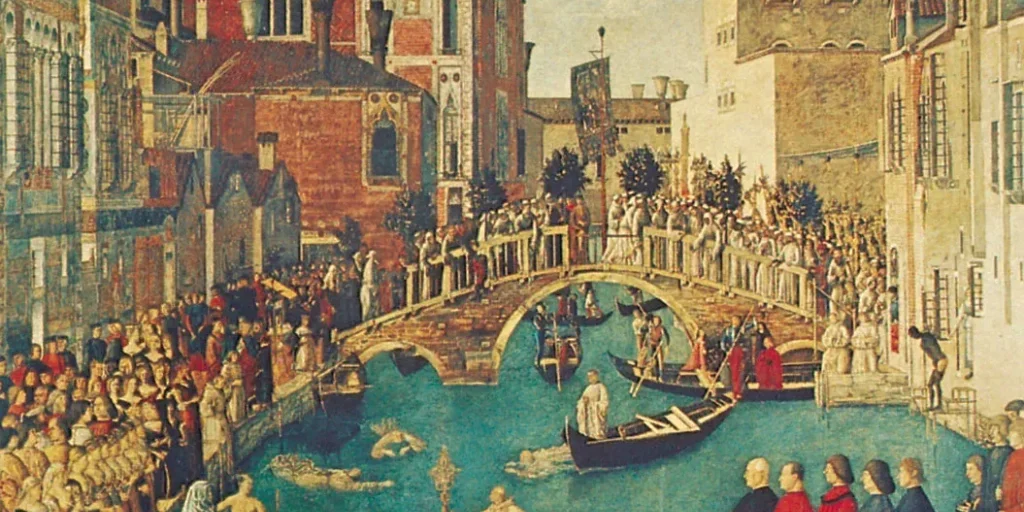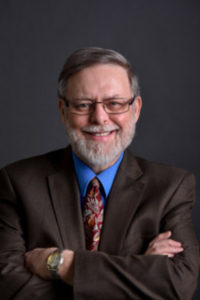
Medieval Nominalism and Postmodern Despair
Italian medievalist Umberto Eco’s 1980 novel, The Name of the Rose, is many things at once. It is a postmodern novel, a detective novel, a novel of metaphysical ideas, and an historical novel set in Italy in November 1327. In an essay about his own novel, (included as a sort of postscript), Eco says that its genre is the “Detective Metaphysic.” Of course, detective stories have always been among the most obviously metaphysical works of literature. They deal with life and death, law and justice, motive and intention. But this was never truer than in this novel, which discusses heresy and orthodoxy, truth and lies, and whether or not the universe is meaningful in the context of the rise of nominalism as promoted by William of Ockham. The “detective” in the novel is William of Baskerville, a Franciscan colleague of William of Ockham and a very modern – even postmodern – man.
Now, what, you may ask, is a “modern man,” (let alone a postmodern one) doing in a novel set in 1327? That is an excellent question! It gets us to the heart of the matter. Three comments are in order.
What is a Modern Man?
First, Eco tells us that in an historical novel even the characters that are made up tell us something about the Italy of the period that history books have never told us so clearly. How do they do this? They do so because, Eco explains, “everything the fictitious characters like William say ought to have been said in that period.” That makes sense. But what I found fascinating is that some of the things the characters say sounds extremely contemporary. Eco explains: “If a character of mine, comparing two medieval ideas, produces a third, more modern, idea, he is doing exactly what culture did.” Eco goes on to claim that readers have written to him to say that some of the things said by characters in the book says things that sound too modern, but that in every instance he was making his character quote directly from fourteenth century texts.
Second, what this means is that some of what we regard as uniquely “modern” or “contemporary” is really part of every age of history. Eco perceptively writes: “every period has its own postmodernism.” This should not be a hard claim to accept since, after all, human nature does not change from century to century. But modern hubris leads us to want to insist that we are uniquely discerning, and we now know more than our ancestors. Some of what we regard as uniquely “modern” or “contemporary” is really part of every age of history. Click To TweetWe think we know what previous generations and previous centuries never did (like teenagers who think their generation discovered sex without pausing to reflect on how they came to exist). One reason we are tempted to think this way is that it is part of a scheme for us to escape blame for our despair. No previous generation ever had our problems! Actually, the truth is that our problems are as perennial as human nature at bottom. We are just boring old sinners when you come right down to it. And there is absolutely nothing creative or interesting about sin.
Third, historical periodization reinforces the tendency to fool ourselves into thinking we are unique. The “Middle Ages” sounds so far away and different. We, by contrast, are modern people. In answer to the question of whether writing about the past is a way of evading the present, Eco makes the insightful comment that “the Middle Ages are our infancy, to which we must always return.” Eco points out that the problems of modern Europe took shape in the Middle Ages including communal democracy, the banking economy, national monarchies, urban life, new technologies, and rebellions of the poor. A theme of the book is the many forms of social rebellion that were seen in the fourteenth century, which was, after all, a time of turbulent upheaval, death, war, and disaster.
Nominalism, Morality, and Reasonableness
This novel is about nominalism and the morality and reasonableness of the cosmos. Near the end of the book, after a series of murders and the conviction of an innocent peasant girl for witchcraft, William and the young novice Adso have a conversation while the Abby burns in which Adso says:
It’s hard to accept the idea that there cannot be an order in the universe because it would offend the free will of God and His omnipotence. So the freedom of God is our condemnation, or at least the condemnation of our pride. . . But how can a necessary being exist totally polluted with the possible? What difference is there, then, between God and primogenital chaos? Isn’t affirming God’s absolute omnipotence and His absolute freedom with regard to His own choices tantamount to demonstrating that God doesn’t exist?” (492-93)
What kind of God is the nominalist God of Sheer Will? To believe in nominalism is to believe that all morality is part of the flux and inherently and always unstable in essence. Click To TweetHe is either non-existent or just another name for blind Fate. But such a God is not the God of the Bible. The characters in the book, and this is the astonishing thing, confront the same nihilistic despair that postmodern Westerners do. And we thought we invented it!
So, it was a bit startling to me that on the morning after finishing the novel I happened to peruse this headline in Catholic World Report: “‘In nomine adulterii’ Observations on the Moral Nominalism of Abp Fernandez.” The story concerns the recent appointment of an archbishop to the position of Prefect of the Dicastery for the Doctrine of the Faith who is himself of quite dubious theological orthodoxy. He is also to become a Cardinal. He is probably the ghost writer of the infamous section of Amoris laitiea, in which the orthodox teaching on marriage is undermined and confused and the door is opened to moral relativism. The article says:
There is a well-known Latin saying, the extreme summary of all nominalism: “Stat rosa pristina nomine, nomina nuda tenemus” (the primrose rose exists only in name; we possess only naked names).
This Latin saying just happens to be the final words found in the novel! It is apparently the source of the title of the book. Nominalism is the denial of metaphysical realism, and metaphysical realism is the basis of moral realism. Click To TweetApparently, medieval nominalism is postmodern and postmodern despair is medieval. The wisdom of that nineteenth century French writer who wrote: “The more things change the more they stay the same” is confirmed again.
Nominalism is the denial of metaphysical realism, and metaphysical realism is the basis of moral realism. Some acts are intrinsically evil apart from circumstances or historical exigencies. The culpability of moral agents can vary depending on the situation, but the act of adultery itself remains evil because each act of adultery participates in the idea of adultery that exists unchangingly in the mind of God. That essence is not part of the flux of this world, but part of the eternal law of God. To believe in nominalism is to believe that all morality is part of the flux and inherently and always unstable in essence. Those who believe that are severely tempted to the kind of existential despair articulated by the young monk Adso above.
For a novel about arcane philosophical issues of the Middle Ages, this one sure seems relevant to our day.
This post was originally published in Dr. Carter’s Newsletter.

